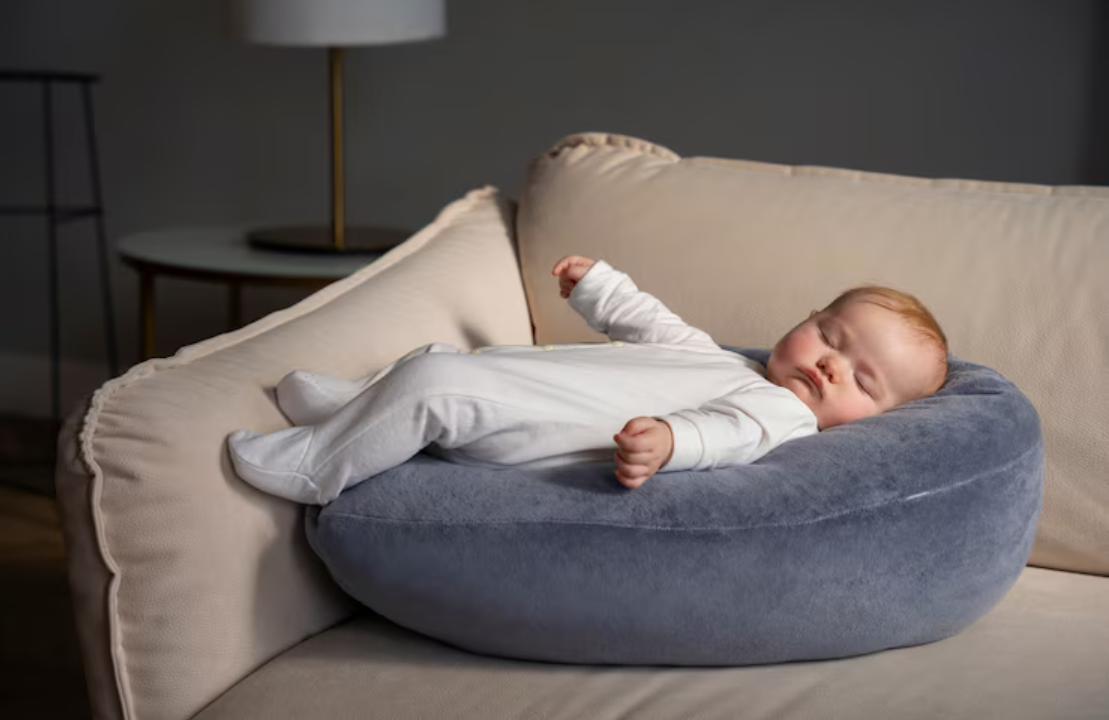Are Sleeping Bags Safe for Newborns? What Parents Need to Know
Sleep is probably one of the most discussed, yet most confusing topics when it comes to ensuring the safety and comfort of a brand-new newborn. One of the many questions that comes up, which is often asked, is: Could sleeping bags be safe for newborns? With an increasing choice of convenient and secure sleep options for parents, newborn sleeping bag options have risen in popularity. But are they really safe, and what should you look for before you decide on one of them?
Let’s review the pros and cons and the necessary safety guidelines for newborn sleeping bags.
What Is a Newborn Sleeping Bag?
A baby sleeping bag is a wearable blanket that helps to keep your baby warm and comfortable when he or she sleeps. Sleeping bags, unlike loose blankets, provide a safer alternative because they stay in place while your baby moves. These uniquely designed sacks are provided with armholes and neck holes to make sure the baby’s head does not cover, which decreases the chances of overheating or SIDS (Sudden Infant Death Syndrome).
Are Sleeping Bags Safe for Newborns?
Yes, sleeping bags can be safe for newborns—if used correctly. In fact, many pediatricians and sleep safety experts recommend them over loose blankets for several reasons:
- Reduces the Risk of Suffocation
One of the leading causes of SIDS is soft bedding and loose items in the crib. A properly sized newborn sleeping bag eliminates the need for additional blankets that could cover the baby’s face.
- Prevents Overheating
Overheating is another risk factor for SIDS. Many sleeping bags are made from breathable, lightweight fabrics with TOG (Thermal Overall Grade) ratings to help parents choose the right warmth level based on the room temperature.
- Encourages Better Sleep
Babies feel secure when swaddled or enclosed. Sleeping bags provide a snug feeling that can help minimise the startle reflex and promote longer stretches of sleep.
- Limits Unnecessary Movement
Some babies move around a lot in their sleep, which can lead to them kicking off blankets and waking up cold. A sleeping bag stays in place all night, ensuring consistent warmth and security.
Key Safety Guidelines to Follow
While sleeping bags are considered a safer option than traditional blankets, it’s crucial to follow specific safety guidelines:
- Size Matters
Always use a sleeping bag that is appropriate for your baby’s age and weight. A bag that’s too large can be dangerous as the baby might slip inside.
- Check the Neck and Arm Openings
The neck hole should be snug enough so your baby’s head can’t slip through, and the armholes should allow for free movement without being too loose.
- Choose the Right TOG Rating
TOG ratings indicate how warm the sleeping bag will keep your baby. For newborns, a 0.5 to 2.5 TOG rating is typical, depending on room temperature. Avoid over-layering clothing under the bag.
- Lay Baby on Their Back
Regardless of what they’re wearing, always place your baby on their back to sleep—this remains one of the most effective ways to reduce the risk of SIDS.
- Avoid Hoods and Drawstrings
Sleeping bags with hoods or drawstrings pose a risk of suffocation or strangulation and should be avoided.
- Don’t Use with Swaddling
Never swaddle your baby inside a sleeping bag, as this could restrict movement too much and lead to overheating or hip issues.
When Can You Start Using a Sleeping Bag?
You can start using a newborn sleeping bag from birth, provided it is specifically designed for newborns. Some parents prefer to swaddle in the first few weeks, then transition to a sleeping bag around 6-8 weeks, especially as babies begin to wriggle more. Make sure to watch for cues—if your baby seems uncomfortable, a different size or TOG rating may be needed.
What Makes a Good Sleeping Bag?
When shopping for a newborn sleeping bag, consider these qualities:
- Soft, breathable fabric (like organic cotton or bamboo)
- Easy-access zippers for nighttime diaper changes
- Machine-washable materials
- Certified safety standards
- Adjustable shoulder snaps for growing babies
One trusted source for safe and thoughtfully designed baby sleeping bags is CocoonCare. Their range of products offers parents peace of mind with premium, skin-friendly fabrics and baby-centric designs. Each item is crafted keeping both comfort and safety at the forefront, perfect for today’s mindful parents.
Final Thoughts
In conclusion, sleeping bags are a safe and effective sleep solution for newborns, provided they are used correctly and meet all safety standards. They not only reduce the risks associated with loose blankets but also offer warmth, comfort, and better sleep for your baby. As always, make sure to check product specifications, size charts, and fabric types when selecting the right one for your child.
If you’re on the lookout for premium quality, thoughtfully designed sleeping bags, explore the collection at CocoonCare’s newborn sleeping bag section. CocoonCare is dedicated to supporting parents through their early journey with sustainable, safe, and stylish baby care essentials. Their products reflect a deep understanding of newborn needs, backed by innovation and care that every baby deserves.

